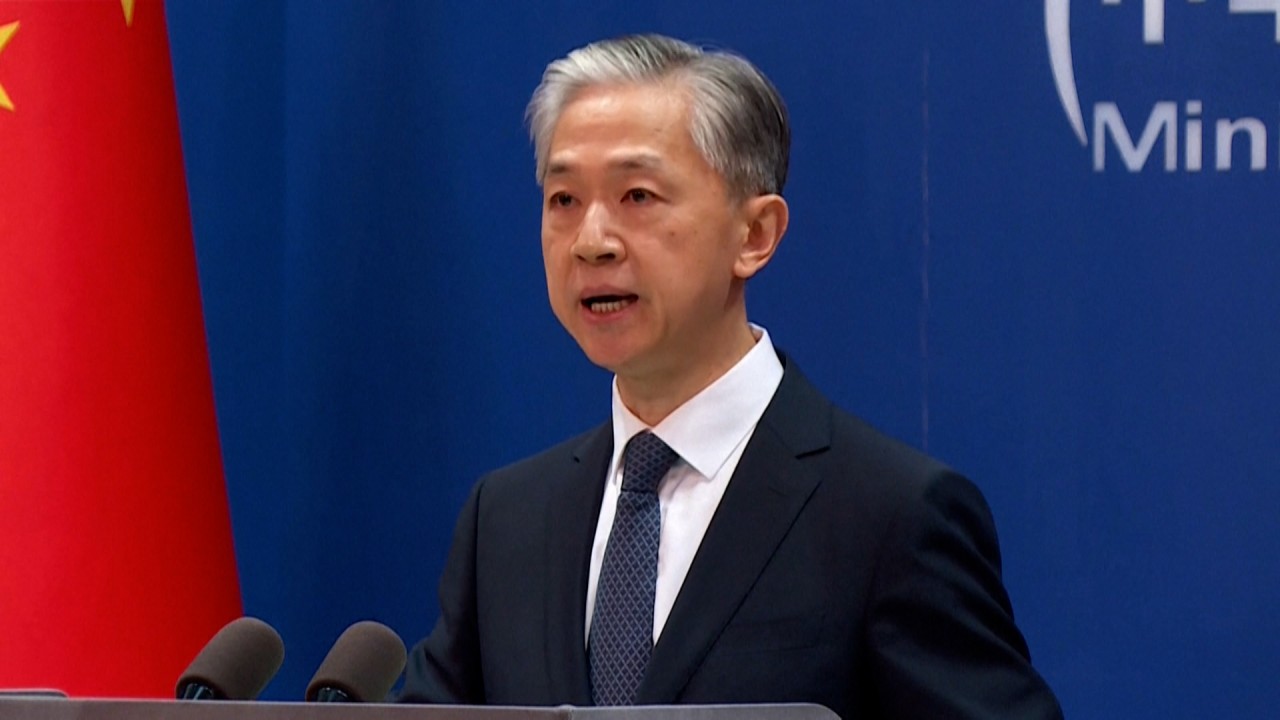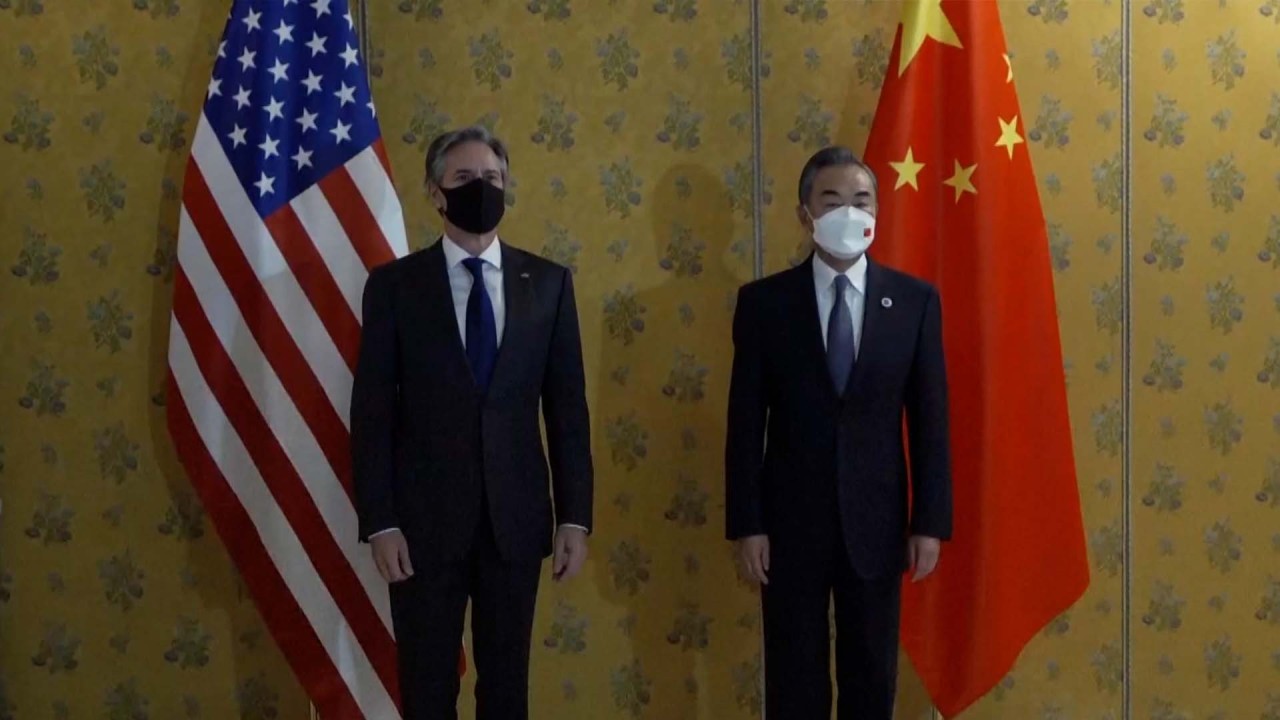
US wants coexistence not cold war with China, Jake Sullivan says
- National security adviser says the White House will not repeat the errors of the past by trying to transform China
- The two rivals are already engaged in fierce competition, analysts says
“The [objective] of the Biden administration is to shape the international environment so that it is more favourable to the interests and values of the US, allies, partners, to like-minded democracies. It is not to bring about a fundamental transformation of China itself,” he said.
“The goal of America’s China policy is to create a circumstance in which two major powers are going to have to operate in an international system for the foreseeable future, and we want the terms of that ... to be favourable to American interests and values.”

00:56
China urges US President Joe Biden to act cautiously over Taiwan, warns ‘no room for compromise’
“The Chinese government does have a different approach to many of these issues,” Sullivan said, adding that “the [US] goal here is not containment, it’s not a new cold war”.
During the interview, the national security adviser said the White House had been advancing the ally system to counter what he called China’s “abuse” of US, European and Indo-Pacific markets and to “show that China’s efforts at pushing other partners around will not ultimately be successful”.
“That is a better metric in my view for whether or not our policy is succeeding than if China signs a piece of paper with the US on something involving economics or climate or whatever you have,” he said.
China’s military uses fake US aircraft carrier for missile target practice
Shi Yinhong, an international relations specialist at Renmin University in Beijing, said Sullivan’s remarks were in line with Washington’s tough stand on Beijing over the last 10 months.
He said the Biden administration was becoming more “organised” and “explicit” as it prepared to lay out formal guidance on China soon.
“The US and China have already entered a new cold war despite the words US officials are using to modify their position. There is no change in behaviour,” Shi said.
“The basic status of relations is increasingly fierce and remarkable all-round competition between the two major powers and especially in terms of strategic military confrontations.”
Lu Xiang, a research fellow in US studies at the Chinese Academy of Social Sciences, said Sullivan took a more “euphemistic” tone in the interview but the underlying attitude towards China had not changed.
“[It is] to create circumstances that benefit the US and not China,” he said.

01:07
No change to US’ one-China stand on Taiwan, Blinken tells Wang Yi on G20 sidelines in Rome
Sullivan said the US would abide by the one-China policy and opposed any “unilateral change to the status quo” in the Taiwan Strait.
But he also said that Beijing was increasing pressure on the island had destabilised the region.

